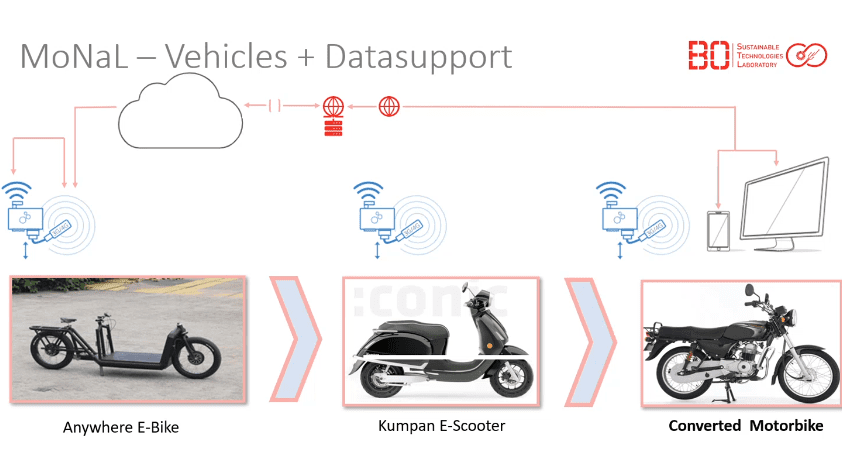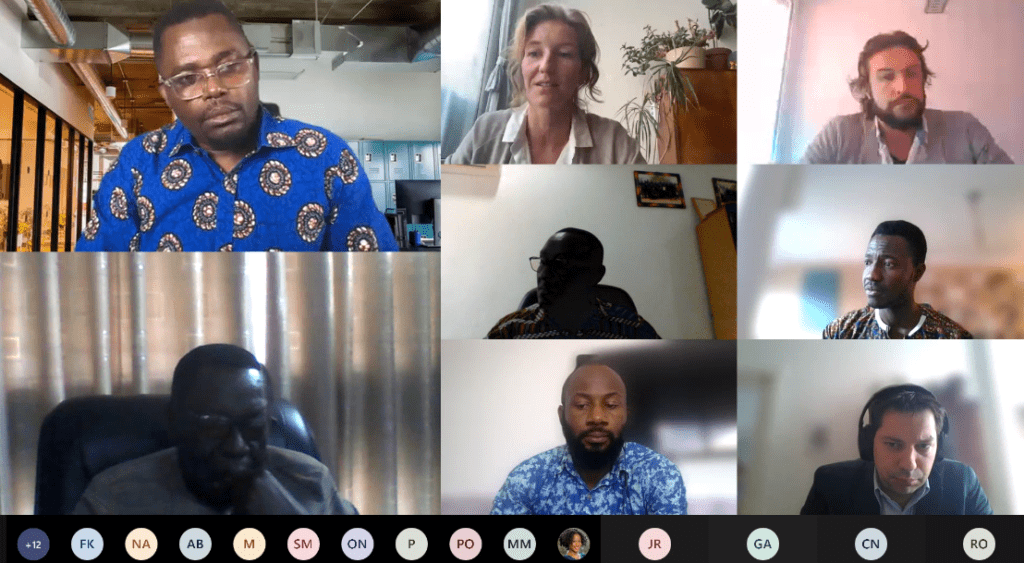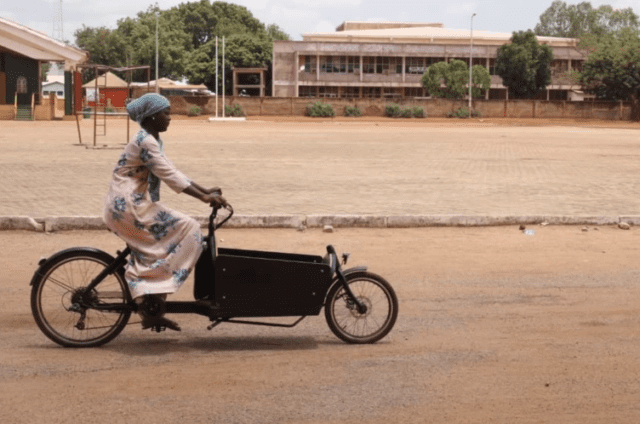Government through the Environment, Science, Technology, and Innovation (MESTI) Ministry, has assured stakeholders involved in the "Mobility Sustainably thought through the life cycle" (MoNaL) project of support and policies to ensure the success of the innovation.
The project aims to reduce climate change and carbon emissions by the use of ElectroMobility, powered by renewable energy in the transportation sector.
The E-mobility vehicles, such as E-cargo bikes and E-scootersfitted with meters, would be charged at designated charging stations.
Samples have been tested at Don BOSCO at Tema in Ghana to help improve or modify them to suit the local situation.

The test also included its sustainability, developing a smart mini-grid for the energy supply, developing environmental standards and recycling concept and knowledge transfer through training.
Contributing to a global virtual MoNaL workshop on Electromobility and Decentralized Energy Systems in Ghana, Oliver Boakye, Special Adviser to the MESTI Minister, said the government considers the deployment of e-mobility vehicles in Ghana as an important and positive development.
He noted that Motor traffic contributes about 24% of CO2 emissions in the environment, thereby making the earth warmer with its consequences.
“And the solution to this challenge is electric vehicles”, Mr Boakye stressed.
Unlike gasoline and diesel cars, he said, “electric cars do not emit CO2, as the batteries and electricity to power them would come from renewable energy and assure quality air and better health of the people”. He, therefore, called on all stakeholders to embrace the MoNaL innovation.
However, Mr Boakye said the ministry with the Energy and Transport Ministries is working to enact policies and seek funding to manage the e-waste in the e-mobility concept.

He also assured the stakeholders that the Ministry with the Environmental Protection Agency (EPA) and the Ghana Standards Authority would develop standards and regulations with enforcement plans to ensure a good legal framework for transitioning from fossil fuel vehicles to e-mobility.
The workshop is a follow-up to an earlier memorandum of understanding signed in Sunyani between the University of Energy and Natural Resources (UENR) and the Bochum University of Applied Science to pilot a solar-generated energy E-bike with a $357,000 German government funding.
The German University and Don Bosco are the main MoNaL project partners. Others include UENR, KNUST, Renewable Energy Center-Ghana, Green Power Brains, and industry players in the sustainable energy sector.
On his part, Prof Dr-Ing. Semih Severengiz with the Bochum University of Applied Sciences said the economic benefit to Ghana in the e-mobility is enormous.
He explained that renewable energy use in the e-mobility space will lead to sustainable energy creation and mobility and job creation, among others.
Prof Severengiz said, “a diligent collaboration with the academia and the industry, and the sharing and transfer of knowledge will go a long way to help realise the MoNaL project”, hence urging for regulated and standardized renewable energy and business modules.
According to Dr Emmanuel Amankwah of UENR, they would use the project to delve into electric cars and motorbikes as their students are willing to learn and help disseminate the project and its benefits.
Throwing more light on the project, a team member of MoNaL, Frederick Adjei, explained that per 2012 Ghana Statistical Service figures, there are about 2.6 million motorbikes in the country which could translate into an estimated market size of ¢16.8 billion for E-Bikes, an indication of its potential to thrive on the Ghanaian market.
He further explained that combustion engine motorbikes could also be converted into electric motorbikes and scaled up in Ghana.
The MoNal project on sustainable mobility, aside from the movement of the basic needs of humans, is expected to be affordable, efficient, limit the emissions and wastes into the environment while minimizing the impact on the use of land and the generation of noise.
The life cycle assessment of an e-cargo bike in Ghana, for example, is estimated to be; frame - 20 years, battery - 4 years, engine and electrical parts -10 years, etc.
The e-cargo bike has a capacity of one person with a payload not exceeding 200kg. A fully charged battery could move a distance of 25km and be charged at charging stations via either a PhotoVoltaic (PV) or a GridMix.

Other panel members who shared insights at the virtual workshop include Larry Kotoei, EPA; George Appiah, Solar Taxi; Lisa Wendzich, CEO, Suncrafter GmbH; Michele Velenderic, CEO, Green Power Brains GmbH; Bernard Adjei, programs manager, Impact Hub Accra; Dr Gordon Ayittor, KNUST, Bernard Adjei, E-cargo project; Keleche Ofeigbo; Impact Hub; with Nhyira Addo of The Multimedia Group Limited, as the moderator.
Latest Stories
-
Dr Nduom hopeful defunct GN bank will be restored under Mahama administration
5 minutes -
Bridget Bonnie celebrates NDC Victory, champions hope for women and youth
13 minutes -
Shamima Muslim urges youth to lead Ghana’s renewal at 18Plus4NDC anniversary
1 hour -
Akufo-Addo condemns post-election violence, blames NDC
1 hour -
DAMC, Free Food Company, to distribute 10,000 packs of food to street kids
3 hours -
Kwame Boafo Akuffo: Court ruling on re-collation flawed
3 hours -
Samuel Yaw Adusei: The strategist behind NDC’s electoral security in Ashanti region
3 hours -
I’m confident posterity will judge my performance well – Akufo-Addo
3 hours -
Syria’s minorities seek security as country charts new future
4 hours -
Prof. Nana Aba Appiah Amfo re-appointed as Vice-Chancellor of the University of Ghana
4 hours -
German police probe market attack security and warnings
4 hours -
Grief and anger in Magdeburg after Christmas market attack
4 hours -
Baltasar Coin becomes first Ghanaian meme coin to hit DEX Screener at $100K market cap
5 hours -
EC blames re-collation of disputed results on widespread lawlessness by party supporters
5 hours -
Top 20 Ghanaian songs released in 2024
5 hours

